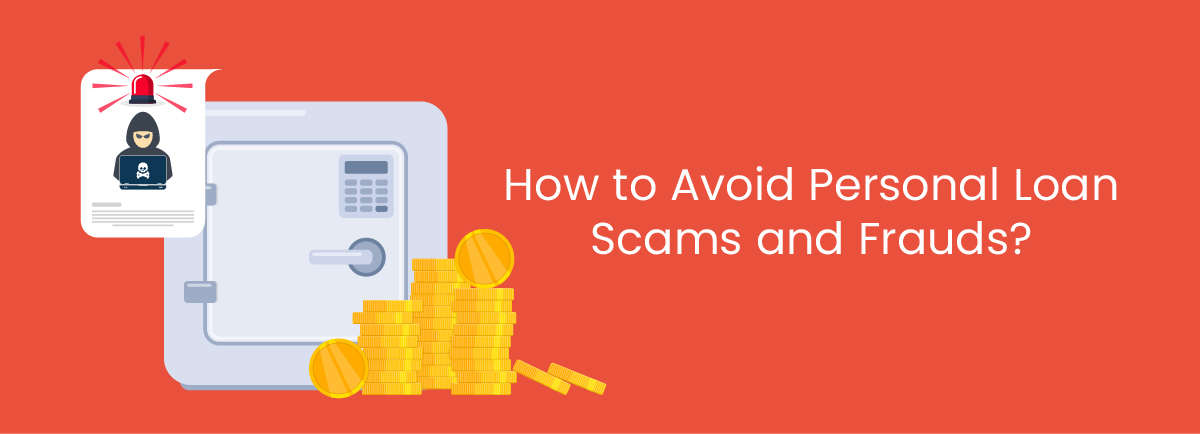
How to Avoid Personal Loan Scams and Frauds
01 July 2024 | By INDIE
In recent years, personal loan scams and frauds are increasing in India. They result in financial distress and emotional turmoil for unsuspecting borrowers. As borrowing money has become common, fraudsters exploit the system.
Let’s delve into the types of personal loan frauds and provide practical steps that borrowers can take to protect themselves from falling victim to these scams.
Types of Personal Loan Frauds
Personal loan frauds encompass a range of deceitful practices aimed at exploiting borrowers' financial vulnerabilities. Some of the most common types of personal loan scams in India include:
Identity Fraud
Fraudsters steal personal information to apply for loans in the victim's name.
False Documentation
Borrowers submit forged documents, such as bank statements and income tax returns, to obtain loans.
Ponzi Proposals
Lenders promise high returns but misuse funds, often in the form of investments, to pay off previous investors.
Loan Flipping Strategy
Lenders convince borrowers to refinance or take additional loans, often at exorbitant interest rates, to earn more fees.
Pay-in-Advance Fraud
Con artists demand upfront payments from borrowers in exchange for loans that are never provided.
Forgery
Fraudsters fabricate loan documents or forge signatures to secure loans.
False Loans
Non-existent borrowers are created to obtain loans from financial institutions.
Coordination Between Lenders and Borrowers
Collusion between lenders and borrowers leads to the submission of falsified paperwork or misinformation to defraud financial institutions.
Also Read: Line of Credit vs Personal Loan! Which one is better?
Protective Measures Against Personal Loan Frauds
To safeguard against personal loan scams and frauds, borrowers should adopt a proactive approach and implement the following measures:
Thoroughly Investigate the Lender
Check accreditation by regulatory bodies like the Reserve Bank of India. Verify contact details, read testimonials, and visit official websites for transparency on loan options and terms.
Verify Loan Documentation
Scrutinize all loan agreements to ensure clarity on terms, interest rates, and repayment plans. Seek clarification from the lender or legal counsel if any aspect of the agreement is unclear or suspicious.
Confirm Personal Data
Validate personal information provided to lenders and regularly check credit reports for accuracy. Beware of lenders requesting excessive personal information or sensitive data.
Exercise Caution with Up-Front Costs
Refrain from paying any fees upfront. Legitimate lenders deduct expenses from the loan amount. Be wary of lenders guaranteeing approval or offering loans to individuals with poor credit history.
Avoid High-Pressure Tactics
Take time to review loan documentation and never succumb to pressure tactics from lenders. Refuse to sign any paperwork without thoroughly understanding the terms and conditions.
Utilize Secure Networks
Provide personal and financial information only through secure websites and networks. Beware of phishing attempts and strengthen online security with two-factor authentication and strong passwords.
Seek Legal Advice
Consult legal counsel to ensure comprehension of loan terms and the legitimacy of the lender. Legal advisors can review contracts for any unfavourable conditions and provide guidance in case of disputes.
Personal loan scams and frauds pose a significant threat to borrowers' financial well-being in India. By familiarising with the different types of fraud and its preventive measures, borrowers can mitigate the risk of falling prey to these deceitful practices. Vigilance, thorough verification of lenders and documentation, protection of personal data, and seeking legal counsel are essential steps to safeguard against any personal loan scams.
Remember, staying informed and cautious is key to protecting yourself from personal loan fraud and securing your financial future.
In addition to traditional personal loans, borrowers in India may also opt for credit line by INDIE, which offers a flexible borrowing solution with a predefined credit limit that can be accessed as needed.
Download the INDIE app today to get a credit line today!
Disclaimer: The information provided in this article is generic and for informational purposes only. It is not a substitute for specific advice in your circumstances. Hence, you are advised to consult your financial advisor before making any financial decision. IndusInd Bank Limited (IBL) does not influence the views of the author in any way. IBL and the author shall not be responsible for any direct/indirect loss or liability incurred by the reader for making any financial decisions based on the contents and information.




